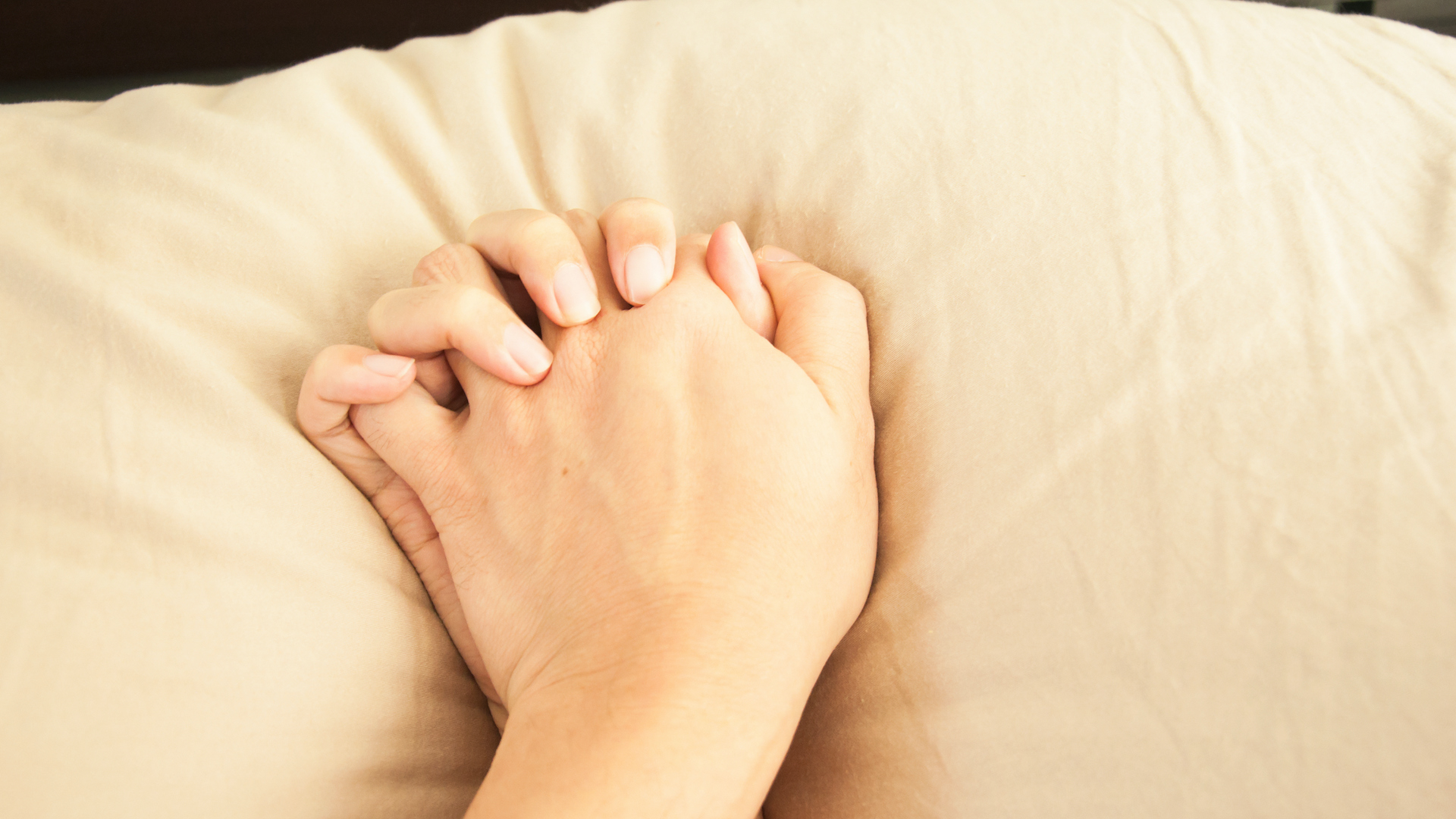The biggest sex myths are about to get debunked
From STIs to the pull-out method, sexperts weigh in on sex myths and what people tend to (incorrectly) believe


Sex is always evolving, and in turn, so are sex myths.
There seem to be new sex trends every year, not to mention endless, wild positions. Heck, you even find sex positions based on your zodiac sign! Or you can forgo a partner entirely and just opt for the best sex toys to help you reach peak satisfaction.
Even though we’re starting to see more open conversations about pleasure, there are still some alarming notions floating around out there that need to be addressed. A study by Lovehoney aims to set the record straight.
(Psst: Here's what gynecologists want you to know in case you're curious.)
Sex myths debunked
1. 'Erectile dysfunction is normal as you age'
While it is a common issue for those with penises, it isn’t the norm when you get old.
Sex consultant, Ness Cooper says, "Almost 70% of those with penises will experience erectile dysfunction by the time they are 70. However, we shouldn’t classify it as normal, as there are many reasons it can affect an individual and these can vary from person to person."
Whatever age you experience it, Cooper says it's crucial to get to a doctor.
"Once the cause of erectile dysfunction is found whether that is psychological, physical or a mixture of both, there are many treatment methods to help manage symptoms."
2. 'Sex isn't painful if you're attracted to your partner'
Another doozy!
First of all, pain during sex can be down to a number of medical reasons. Even things like vaginal dryness, which is completely normal and can strike at any time during your monthly cycle, can lead to discomfort.
As far as attraction, it has nothing to do with the act itself.
"Being attracted to your partner doesn’t stop sex from being painful if you’re experiencing pain during penetration," Cooper says.
“If you are attracted to your partner it can mean you become aroused easier when thinking or being with them, and this can lead to producing more vaginal lubrication naturally, but may not solve intercourse-related pain."
(Psst: all your lube questioned answered might be a good place to start if you're experiencing discomfort.)

3. 'You can tell if you have an STI'
An alarming 21% said they believe you can always tell if you have an STI. This is a seriously dangerous myth, as STIs are notorious for running unnoticed and then being sexually transmitted to others.
"Sometimes STIs can go unnoticed due to the incubation time before they really become active in the body," Cooper says. "Even when an STI is active and showing up on test results, there aren't always symptoms. This is why it’s important to get tested regularly as we can’t always tell if we have contracted one."
4. 'You can get an STI from a toilet seat'
We’ve all heard this rumor, and it is 100% NOT true.
“STIs don’t spread on toilet seats, and ones that spread through contact of bodily fluids don’t survive outside of the body long enough to be transmittable through sitting on them on a toilet seat," Cooper assures.
5. 'Pulling out is an effective form of contraception'
The pull-out method can be very tempting among those of us who struggle with hormonal contraceptives and dislike the feel of condoms—but it is not a reliable method of contraceptive. Even if your partner pulls out before ejaculation, pre-cum can still contain sperm.
Cooper says, "Whilst pre-cum often only contains trace amounts of active sperm there is a possibility someone could get pregnant from penetration that has pre-ejaculation. This means that the pull-out method isn’t always reliable."
Relying on the pull-out method without using condoms can also put you at risk of STIs and STDs.

6. 'You don't need to pee after sex'
Yes, you should definitely tinkle after engaging in any frisky activity.
"Everyone should be urinating after sex, and this is all types of sex–partnered sex, masturbation and using sex toys," says certified sex educator Javay Frye-Nekrasova. "Engaging in sexual activity can introduce bacteria and germs into the urethra that can lead to a UTI, so peeing after sex can clear anything out that may have made its way into the urinary tract."
7. 'Cranberry juice cures UTIs'
When things get a little suspicious down there, women oftentimes stock up on cranberry juice at the grocery store. While yes, this could work for some, it doesn't necessarily mean the juice works miracles.
"If you talk to frequent UTI-havers they may say that cranberry juice is their saving grace, but if you were to talk to a doctor they would say drinking water and urinating when you feel you have to go is your best defense against UTIs," Javay Frye-Nekrasova says.
If you experience frequent UTIs, it's important to seek medical attention.

Naomi is a Lifestyle News Writer with the Women's Lifestyle team, where she covers everything from entertainment to fashion and beauty, as well as TikTok trends for Woman&Home, after previously writing for My Imperfect Life and GoodTo. Interestingly though, Naomi actually has a background in design, having studied illustration at Plymouth University but lept into the media world in 2020, after always having a passion for writing and earned her Gold Standard diploma in Journalism with the NCTJ.
Before working for Future Publishing’s Lifestyle News team, she worked in the Ad production team. Here she wrote and designed adverts on all sorts of things, which then went into print magazines across all genres. Now, when she isn’t writing articles on celebs, fashion trends, or the newest shows on Netflix, you can find her drinking copious cups of coffee, drawing and probably online shopping.